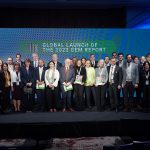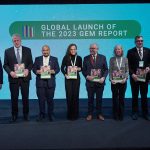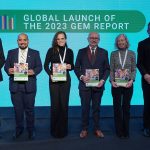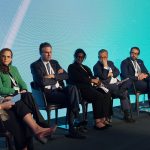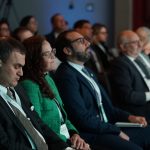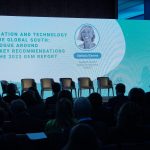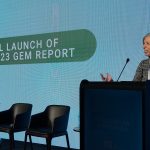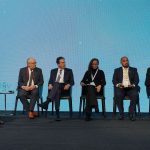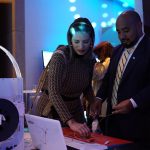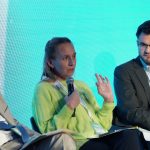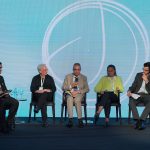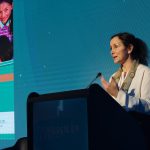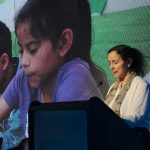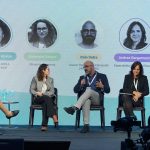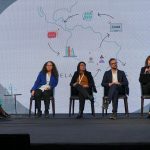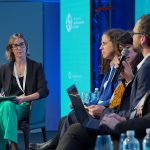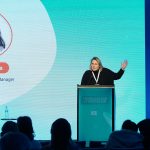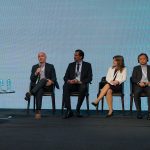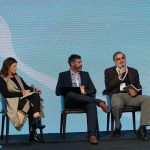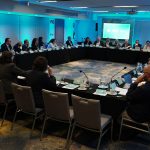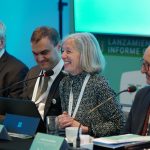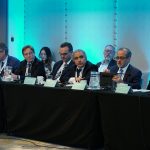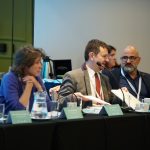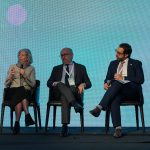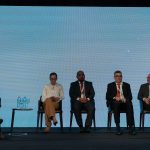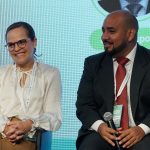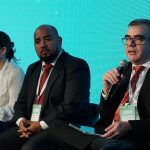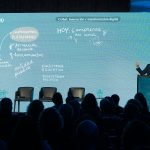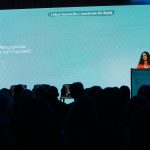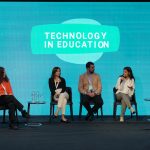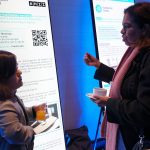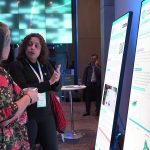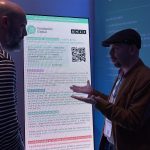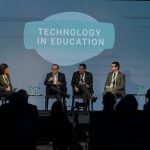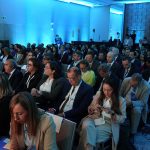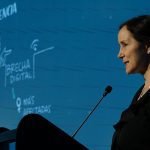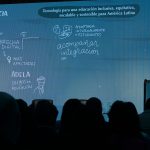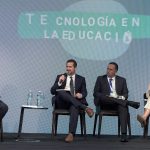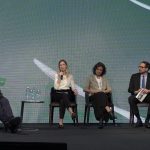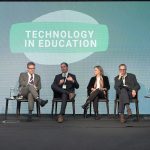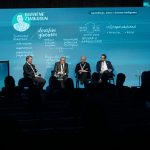News

UNESCO Global Education Monitoring Report presented in Uruguay
Uruguay has hosted the global launch of the Global Education Monitoring (GEM) Report of UNESCO, which this year addressed education challenges to which appropriate use of technology can offer solutions. It is the first time that this report has been presented in Latin American.
The event was organized by the Ceibal Foundation in coordination with the GEM Report team, based at UNESCO in Paris, and the Uruguayan Ministry of Education and Culture (MEC).
It took place in a blended format with the on-site participation of the Ministers of Education of Argentina, Brazil, Ecuador, Honduras, Paraguay and Uruguay, and over 70 experts and national and international leaders, academics, representatives of civil society organizations and the private sector from across the continent and the rest of the world. It also featured online contributions from the Ministers of Botswana, Chile, El Salvador, Estonia, Indonesia, Rwanda, Sierra Leone, South Sudan and Zambia.
“For the first time, the presentation of the highly respected Global Education Monitoring Report, produced annually by UNESCO, is taking place in Latin America, in Montevideo. This choice is evidence of the close working ties that exist between Uruguay and UNESCO, supported by agreement on some key issues, such as the importance of making evidence-based education policy decisions. It is a pleasure to welcome the heads of UNESCO, State ministers and education specialists coming to our country from different parts of the world. A common task has brought us together”, said the Minister of Education and Culture of Uruguay, Pablo da Silveira, at the opening. During the event, the education minister also referred to the fact that “education has always availed itself of technology, but today the link between the two has taken on a dimension and complexity seldom seen in history. What is important is to make decisions on how we are going to make use of this tool to achieve educational goals and the way in which we can avoid possible risks related to its use, and thus make fewer mistakes”.
In the words of UNESCO Assistant Director General for Education Stefania Giannini, “The digital revolution is taking place at a relentless pace. This meeting has been instrumental in bringing us together, since we are steering a clear course to keep education resilient, adaptable and capable of meeting this change.”
Leandro Folgar, president of Ceibal, pointed out that the fact that Uruguay was the country chosen to present a global report of this nature “is an indication of the prominent place we hold on the international scene, especially on account of managing to support education continuity during an emergency. Through Ceibal, students and teachers had access to virtual learning environments, maths platforms, a national digital library, training, and support.”
UNESCO GEM Report Director, Manos Antoninis, stressed that “no use of technology meets all our learning needs, but the risks of using tools which are not suitable or equitable are the same in any context. The launch of the 2023 GEM report is confirmation that the education community is the only one that must set the terms for the use of technology in education. In this regard, the launch event also celebrated Uruguay’s commitment to taking on this tough challenge: how to adapt the new and beneficial uses of digital technology to the usual educational traditions.”
María Florencia Ripani, director of the Ceibal Foundation, pointed out that the report “stresses that suitable, unbiased evidence on the impact of technology on education is thin on the ground and that much of the existing evidence comes from the richest countries and technology providers, so it is essential to promote research in this field contemplating the range of contexts”.
The Ceibal Foundation coordinates the Alliance for the Digitalization of Education in Latin America (ADELA) and carries out applied research projects on education and technology in different countries in the region, in addition to leading a sectoral research fund based on public policy needs in Uruguay together with the National Agency for Research and Innovation (ANII). The Foundation also systematizes and disseminates Ceibal’s activities such as the Nodo awards nationally and internationally.
Ripani also stated that the role of the Ceibal Foundation as host of this key event on the world calendar is a sign of its growth and national, regional and international standing in research, innovation and dissemination activities on these topics.
The event held for the global launch of the 2023 GEM Report on technology in education included the ADELA annual meeting, which discussed the challenges and opportunities of digital education in teacher training, inclusion and closing gender gaps with panels of international development and public policy experts.
Additionally, several thematic blocks were organized with the participation of experts in different areas. One of them analyzed the link between education, technology, governance and public policies. Another presented the main digital transformations and innovations developed by Ceibal. Specialists also discussed the digital transformation of education in Latin America and the global south and the significance of using technology for inclusive, equitable, scalable and sustainable education in the region.
Other panels focused on the challenges and opportunities of education in technology and innovation, research on the subject, lessons learnt, smart systems and data, while a panel discussion with the participation of business representatives was held on public-private cooperation to reflect on how technology providers can support the sustainable development of education in the region.
During the two days of work there was an exhibition on the evolution of Ceibal devices and activities, and a digital exhibition of research and innovation projects of the Education Sector Fund: Digital Inclusion, led by the Ceibal Foundation and the National Research and Innovation Agency (ANII).
The event brought together delegates from institutions such as the World Bank (WB), Canada’s International Development Research Centre (IDRC), the Inter-American Development Bank (IDB), UNICEF, the Development Bank of Latin America and the Caribbean (CAF), the Organization of Ibero-American States (OEI) and ProFuturo, among others.
For access to the full content of the 2023 GEM Report, follow this link: Bit.ly/2023gemreport
